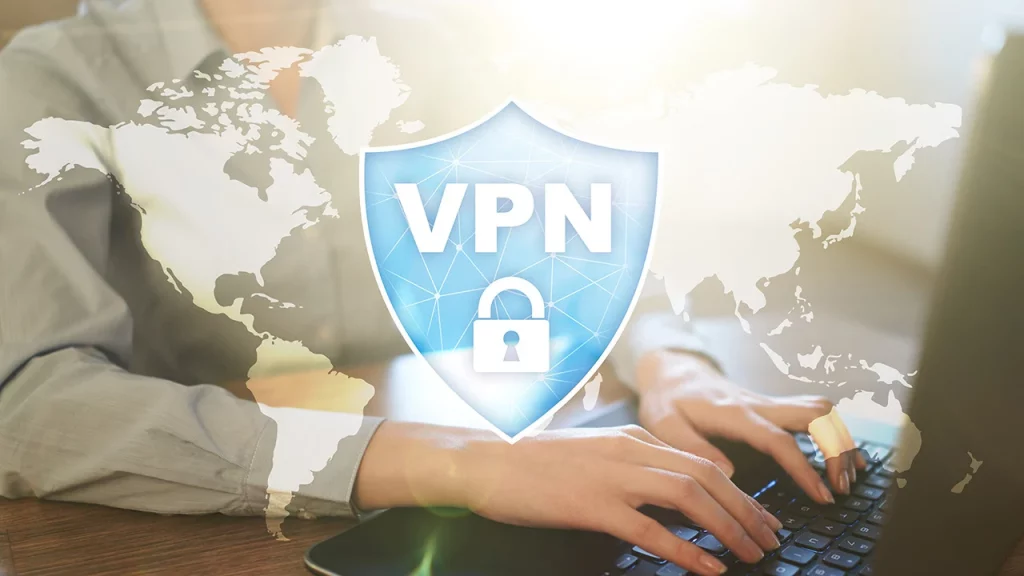
Virtual Private Networks (VPNs) have grown from a small popular networking idea into a big business. You’ve probably seen your favorite YouTubers talking during broadcasts, podcasts, and even the Super Bowl where a VPN will allow you to enjoy anonymous or free video streaming. Is the product as advertised? VPN is a useful tool for protecting your privacy, but it is important to understand how these tools work to decide if they are really helpful. We will explain in detail what a VPN does and why you will not understand how to choose. group.
How does a VPN work?
When we talk about VPN, we usually mean commercial VPNs that are sold to consumers for use in their daily lives, but the concept of VPN has a much wider application. Long before COVID-1 forced work from home, businesses were using VPN technology to allow users to access digital resources wherever they were.
When you turn on a VPN, an encrypted connection (sometimes called a “tunnel”) is created between your device and a remote server controlled by the VPN service. All Internet traffic is sent through this tunnel to the server, delivering that traffic to the Internet as usual. Data back to your device follows the same path from the Internet to the VPN server, through an encrypted connection, and back to your computer.
Will a VPN make you anonymous online?
Encrypting your traffic and using it through a VPN server makes it difficult, but not impossible, for eavesdroppers to monitor your identity and activities on the Internet., but it does help improve privacy.
For example, your Internet Service Provider (ISP) is the only thing that really understands what you do online. The FTC will issue a report in 2021 (opens in a new window). This will show how much your ISP knows about your online behavior. To make matters worse, Congress has allowed ISPs to sell anonymous data about their customers. If you don’t like the fact that the company you pay for now gets the benefit of your data, or if you think about your ISP storing details about your activity, that’s why a VPN has ability to help. Your ISP can’t see your web traffic, even if you’re using a VPN.
A VPN also makes it harder for advertisers and other users to track you online. Data is usually transferred from the Internet to your device using your IP address. When VPN is enabled, your real IP address is hidden and anyone watching you can only see the IP address of the VPN server. By hiding your real IP address, a VPN robs spies of one of the tools they use to identify and track you online.
Do VPNs protect against malware?
Many VPNs are said to include data protection. Sometimes this is a simple protection against bad sites and data. Some VPN services also include advanced antivirus tools, and some antivirus companies now offer VPNs.
Because we often think of VPNs as privacy products, we often don’t test them for malware. We believe that a standalone anti-malware program that you buy or that comes with your computer does a better job of combating malware threats. Also, as a private property, we believe that VPNs should pay less for your website.
Does a VPN protect you online?
A VPN can hide the details of your web traffic from some eavesdroppers and make it harder to track you online. However, at best, a VPN can only provide limited protection against online threats such as malware, social engineering scams, and phishing sites.
There are better ways to deal with these threats. Your browser, like most antivirus apps, has a built-in tool to detect phishing sites, so pay attention if you see a warning message. If you see a suspicious pop-up or receive a strange email that asks you to take action, use common sense. Many people reuse passwords and use weak passwords, so get a password manager that creates and stores unique and complex passwords for every site and service you use. Finally, secure your online account and make multiple confirmations whenever possible.
Do VPNs hide torrenting and online activity?
When a VPN is active, all traffic is encrypted. This means your ISP cannot see the websites you visit or the files you transfer.
However, your ISP will not notice that you are downloading the entire Great British Bake Off series, but may think that you are using too much bandwidth. It can only violate your terms and conditions. Piracy content may violate the VPN’s terms of use, so be sure to check carefully.
